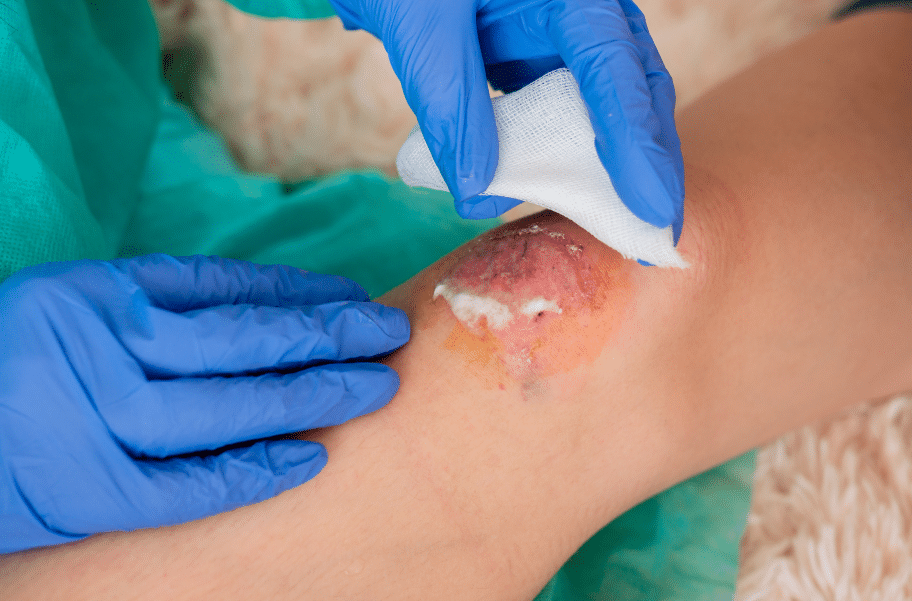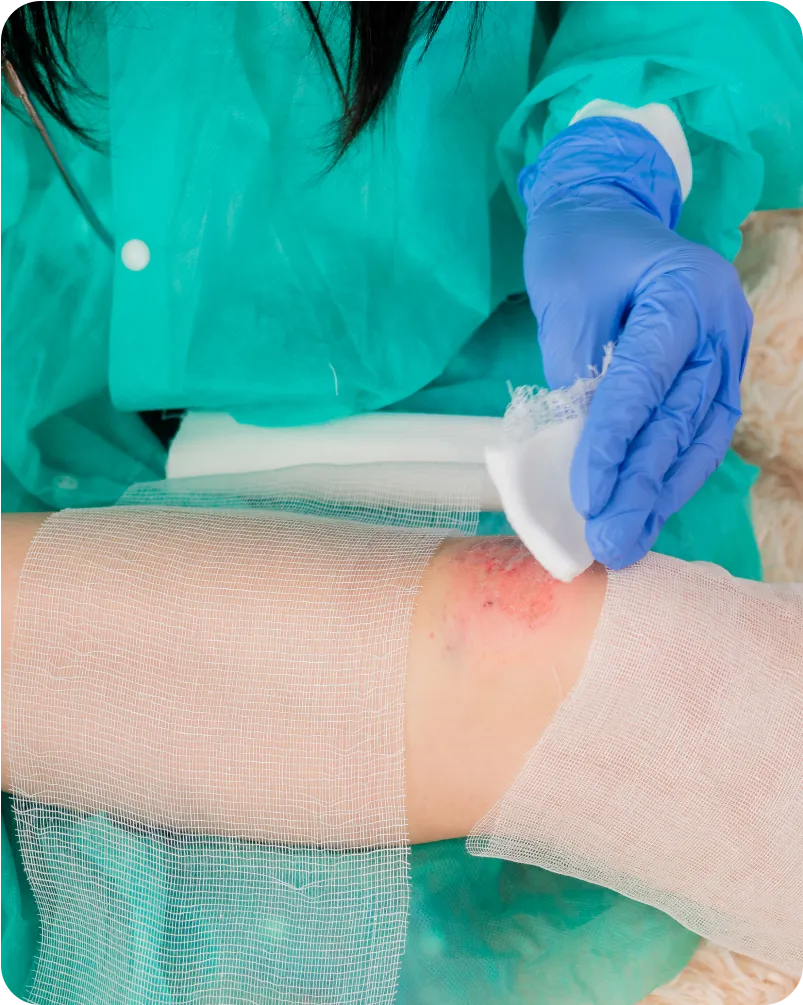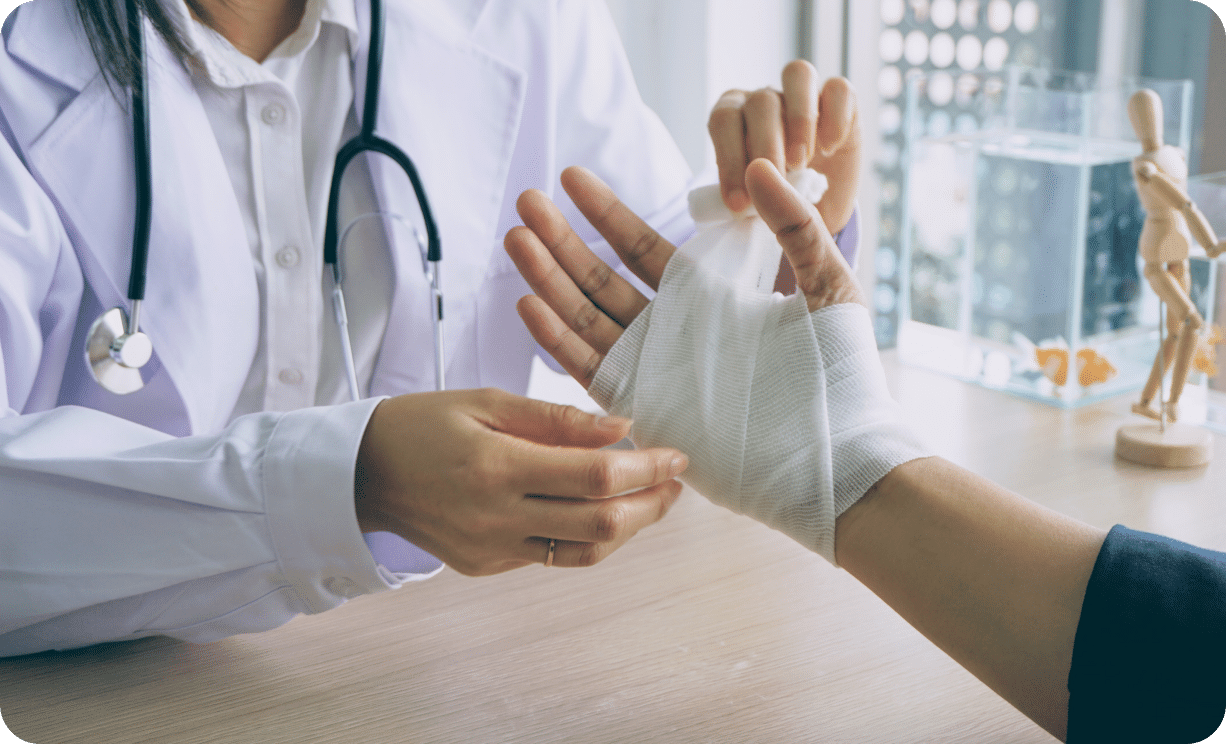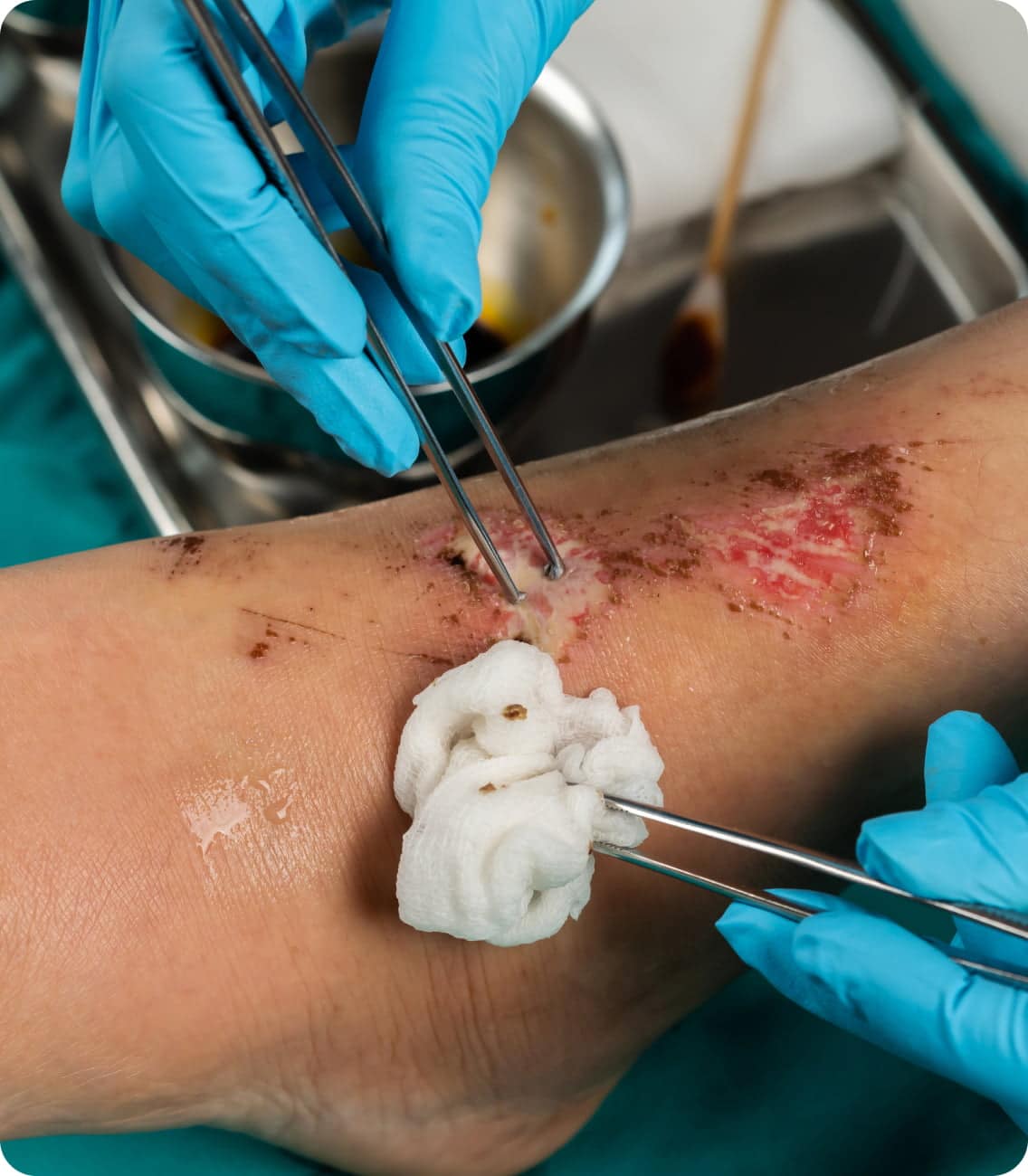
Abrasions
Understanding Abrasions and Their Treatment
What are Abrasions?
Abrasions are essentially superficial injuries to the skin caused by friction or rubbing against a rough surface. They’re often referred to as scrapes or grazes and are one of the most common types of skin injuries. When your skin comes into contact with something rough, like asphalt, concrete, or even rough fabric, the outer layer of your skin gets rubbed away. This exposes the underlying layers of skin, causing pain, redness, and sometimes bleeding.
Treatment of Abrasions
Dealing with an abrasion, whether it’s a scraped knee from a fall or a road rash from a bike accident, can be a bit of a nuisance. But fear not! With the right approach, we can help you heal up quickly and comfortably.
From cleaning the wound to protecting it as it heals, we’ll cover everything you need to know to promote healing and prevent infection.
- Clean the Wound: Start by gently rinsing the abrasion with cool, clean water to remove any dirt, debris, or foreign particles. Avoid using harsh soaps or chemicals, as they can irritate the skin.
- Disinfect the Area: Once the abrasion is clean, you can apply a mild antiseptic solution, such as hydrogen peroxide or rubbing alcohol, to help prevent infection. Be sure to use a clean cotton ball or sterile gauze pad to apply the antiseptic, and avoid getting it into the wound.
- Protect the Wound: Cover the abrasion with a sterile adhesive bandage or non-stick gauze pad to keep it clean and protected from further irritation or contamination. Change the bandage regularly, at least once a day or whenever it becomes wet or dirty.
- Promote Healing: Keep the area around the abrasion clean and dry to facilitate the healing process. Avoid picking at or scratching the scab, as this can delay healing and increase the risk of infection. If the abrasion is on a joint or other area prone to movement, consider using a bandage or adhesive strip to provide extra support and protection.
- Manage Pain: Over-the-counter pain relievers, such as acetaminophen or ibuprofen, can help alleviate any discomfort associated with the abrasion. Follow the dosage instructions on the medication packaging and consult a healthcare professional if you have any concerns.
- Monitor for Signs of Infection: Keep an eye on the abrasion for any signs of infection, such as increased redness, swelling, warmth, or pus-like drainage. If you notice any of these symptoms, seek medical attention promptly for further evaluation and treatment.
- Time and Patience: Most abrasions will heal on their own within a week or two with proper care. Be patient and give your body the time it needs to heal naturally.

When to Seek Medical Attention?

While most minor abrasions can be treated at home, it’s important to seek medical attention if you have any concerns about the severity of the injury or if you’re unsure about how to properly care for the wound.
- Deep or Severe Abrasions: If the abrasion is particularly deep, large, or extensive
- Excessive Bleeding: If the abrasion is bleeding heavily and the bleeding doesn't stop with direct pressure, it may indicate the need for medical attention.
- Embedded Debris: If there are foreign objects or debris embedded in the abrasion that cannot be easily removed.
- Signs of Infection: If the abrasion shows signs of infection, such as increasing redness, swelling, warmth, or the presence of pus-like drainage, medical attention is needed.
- Difficulty Moving or Using the Affected Area: If the abrasion is located on a joint or other area of the body where movement is restricted or painful.
- Underlying Health Conditions: If you have certain underlying health conditions that may affect wound healing, such as diabetes or a compromised immune system.
if you have any concerns about the severity of your abrasion or if you’re unsure about how to properly care for the wound at home, it’s always best to err on the side of caution and seek medical advice. Prompt medical attention can help ensure proper treatment and prevent complications.
Learn MoreOur Approach
To Abrasioins Care
At MetaCure we prioritize the well-being and comfort of our patients. Our experienced team of healthcare professionals is dedicated to providing prompt, comprehensive, and compassionate care for lacerations of all types and severities.

Our Abrasion Treatments
Treating Abrasions involves a multi-faceted approach aimed at promoting healing, preventing infection, and relieving discomfort.
